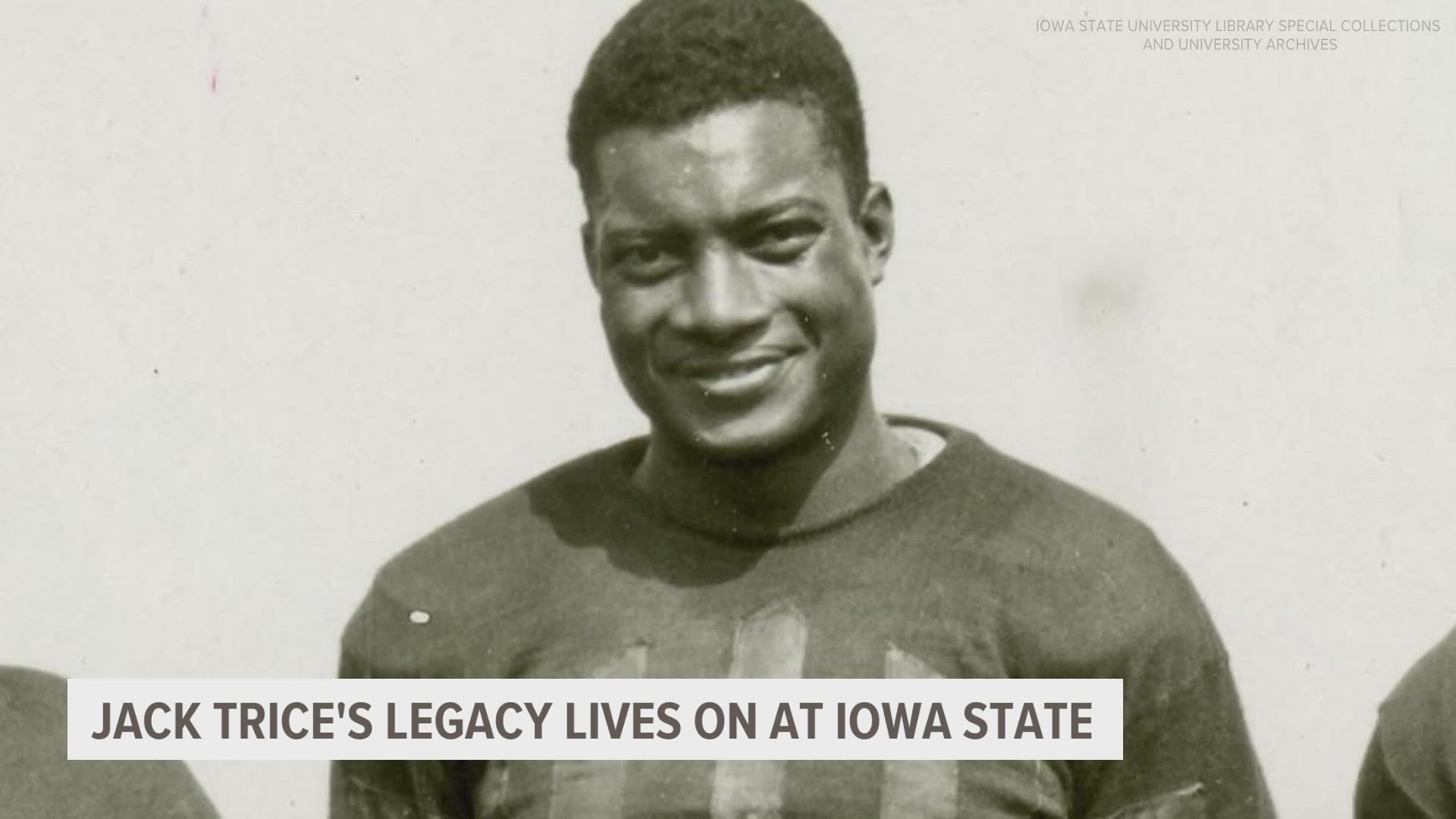AMES, Iowa — Almost 100 years after his death, the story of Jack Trice, Iowa State's first Black athlete, still resonates deeply with today's Cyclone athletes like O'Rien Vance, a former Iowa State linebacker.
"To bet on yourself when every single odd was against you. No one wanted him to be there on that field, no one wanted him to play football. To go out and be one of those... guys that played on both sides [of the ball]," Vance said. "He was one of those guys that played on both sides of the ball. I mean, for me I also decided to go to Iowa State because it was named after one of the only African Americans, so to have that and to be able to play in Jack Trice Stadium meant the world to me."
Jack Trice exemplified courage and determination. He was driven to succeed not only for himself, but to ultimately help others.
"He wanted to better himself," said Jonathan Gelber, author of "Idealist: Jack Trice and the Fight for a Forgotten College Football Legacy". "He wanted to use football as a way of get an education even though there were no scholarships at the time."
In 1922, he began attending Iowa State. He studied animal husbandry, which deals with raising livestock and selective breeding.
His goal was to use what he learned to help Black farmers.
Outside of his studies, Trice was on the track and field team and the football team.
In fall of 1923, Trice was set to play in what he considered his first real college football game.
The day before, he put his thoughts on paper in the now famous letter.
Part of it read, "The honor of my race, family and self are at stake. Everyone is expecting me to do big things. I will! My whole body and soul are to be thrown recklessly about the field tomorrow. Every time the ball is snapped, I will be trying to do more than my part."
"Jack, when he was stepping out there, was not just representing himself, he was representing his family and the first thing he listed was his race," Gelber said. "A lot of people of color who I've interviewed, that's what they understand and I think that particularly resonates with them."
While inspiring, the letter was equal parts eerie, almost foreshadowing his own death.
On Oct. 6, 1923, Trice suffered serious injuries in the game against Minnesota.
Those injuries would lead to his death just two days later.
As the years passed, the memory of Jack Trice faded from memory on the Iowa State campus - until the late 1950s.
Tom Emmerson was a reporter for the student newspaper, the Iowa State Daily, when he came across a plaque dedicated to Trice in a gym on campus.
Not familiar with who he was, Emmerson asked around and got filled in on Trice's story. But he wanted to know more.
"I would like to say I went immediately, but pretty close to immediately, to the library and asked to find out more about him," Emmerson said. " And that's where I got almost all the information for the story."
In 1957, he wrote an article about Trice that would spark new interest from students to bring Trice's story back to the forefront.
The article didn't generate buzz immediately though. In fact, it wasn't until the early 1970s that it resurfaced.
By then, Emmerson had become a professor at the University and was actively working to educate students about Trice.
"The main thing we did [was] more or less establish an informal guerilla movement inside the journalism building and the idea was to keep the story alive," Emmerson said.
It worked. Who Jack was and what he stood for resonated with students, and they felt that he should be honored.
"Iowa State had begun building its new stadium and one of the students said 'Jack Trice Stadium,' let's go for that," Emmerson said. "That was their focus."
Channeling the same "I will" mentality Trice expressed in his letter, the students persisted, and in 1997, they accomplished their goal.
It took almost a quarter century to get Trice's name on that stadium, but now, his legacy is immortalized for all to see.
While Trice's life was short, the impact he made is immeasurable.
"This ideal of Jack not only trailblazing in his lifetime, but inspiring a generation of students, and here we are a 100 years later still talking about him," Gelber said.

